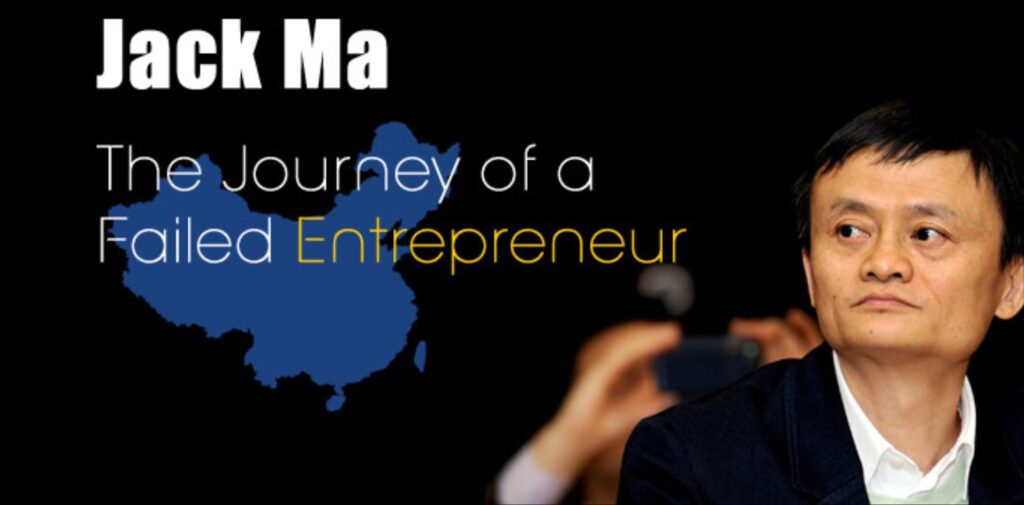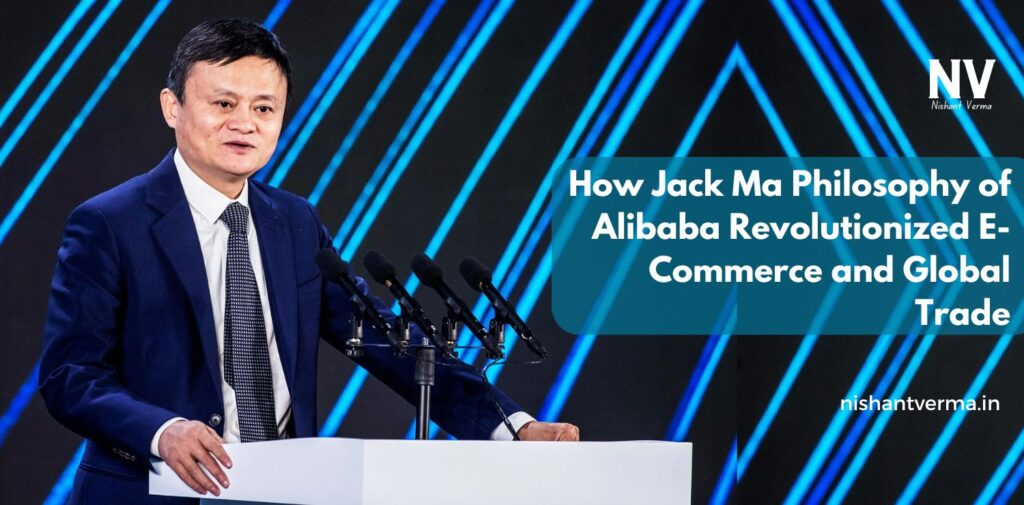In the world of business, few stories are as inspiring and transformative as that of Jack Ma and Alibaba. What started as a small idea in a modest apartment in China grew to become one of the largest e-commerce platforms in the world, changing how people shop, sell, and do business across the globe. Jack Jack Ma Philosophy of Alibaba didn’t just revolutionize e-commerce; they also reshaped the entire landscape of global trade.
This article will dive deep into how Jack Ma’s innovative thinking and bold approach made Alibaba a giant, and how his philosophy continues to inspire entrepreneurs, businesses, and individuals worldwide.
The Humble Beginning of Jack Ma
Jack Ma’s journey to success is nothing short of extraordinary. Born in 1964 in Hangzhou, China, Ma wasn’t always the tech mogul he is today. He faced numerous failures and rejections throughout his life. He didn’t succeed in his first attempts at college and was turned down by multiple employers, including KFC. Despite these setbacks, Jack Ma had a strong belief in technology and its power to connect people.
In the mid-1990s, when the Internet was still a new concept in China, Ma recognized the potential of the World Wide Web and decided to explore the opportunities it offered. He founded Alibaba in 1999 to help small businesses gain access to international markets. Ma’s vision was simple yet powerful: create a platform where small businesses could trade globally, without the barriers traditionally set by big corporations or governments.

Alibaba’s Vision: Empowering Small Businesses
From the very beginning, Jack Ma focused on empowering small businesses. He believed that the internet could level the playing field, allowing small players to compete with large corporations on a global stage. This philosophy of inclusion and empowerment became the cornerstone of Alibaba’s business model.
Unlike other e-commerce platforms that focused on selling products directly to consumers, Alibaba initially concentrated on helping businesses connect with other businesses. The creation of Alibaba.com was a game-changer for small manufacturers and suppliers in China who were looking to sell their products globally. Through Alibaba, these businesses could find international buyers, manage orders, and streamline their transactions—all from the comfort of their own offices or homes.
By doing so, Jack Ma helped bridge the gap between China’s manufacturing giants and buyers from around the world, making it easier for small businesses to thrive in a competitive global marketplace.
The Launch of Taobao and the Shift to B2C
While Alibaba.com focused on business-to-business (B2B) transactions, Ma didn’t stop there. In 2003, he launched Taobao, an online shopping platform that allowed consumers to buy products directly from sellers. At the time, many Chinese consumers were still hesitant to buy products online, and there were very few e-commerce platforms in China to cater to this growing demand.
Taobao was designed to be user-friendly, offering a simple and secure online shopping experience. In contrast to platforms like eBay, which charged listing fees, Taobao was free for sellers to use. This attracted millions of small and medium-sized businesses to the platform. Jack Ma’s decision to offer free listings was rooted in his belief that business should be inclusive and open, rather than exclusive and profit-driven.
The success of Taobao marked a turning point in the way Chinese consumers viewed e-commerce. It not only increased online shopping in China but also helped to build trust in digital transactions. Thanks to Taobao’s success, Alibaba was able to create a thriving online retail ecosystem that connected millions of sellers and buyers.

Alipay: Revolutionizing Payment Systems
A key part of Alibaba’s growth was the introduction of Alipay, a digital payment system launched in 2004. At the time, China didn’t have a reliable online payment system, and many consumers and businesses were hesitant to make transactions over the Internet.
Alipay solved this problem by providing a secure, easy-to-use payment gateway that allowed buyers and sellers to exchange money without worrying about fraud or scams. What made Alipay even more unique was its escrow system, where the payment was held by Alipay until the buyer received the product. This system built trust between buyers and sellers and eliminated many of the fears associated with online transactions.
By providing an efficient and safe way to pay for goods and services online, Alipay transformed the e-commerce experience not just in China, but across the globe. This was one of Jack Ma’s most important innovations, as it helped Alibaba build a seamless ecosystem of services that made online shopping not just easier, but also safer.
Global Expansion: Bringing Alibaba to the World
Alibaba’s success in China wasn’t enough for Jack Ma. He always had a bigger vision: to make Alibaba a global force. This vision drove him to push for expansion outside China’s borders, starting with the acquisition of foreign platforms like Lazada in Southeast Asia and AliExpress, which made Chinese products accessible to customers worldwide.
Through strategic acquisitions and partnerships, Alibaba became a dominant player in the global e-commerce market. With its reach now spanning across Asia, Europe, and the Americas, Alibaba is no longer just a Chinese company—it is a truly international business, bringing Chinese products and services to consumers around the world.
The “Customer First” Philosophy
One of the most important aspects of Jack Ma’s leadership was his strong focus on customer satisfaction. He always stressed the idea that “customers are always number one”. This mindset was reflected in every aspect of Alibaba’s business. Whether it was through creating user-friendly websites, offering secure payment options, or ensuring timely deliveries, Jack Ma made sure that Alibaba prioritized the needs and experiences of its customers.
This customer-first approach extended not only to buyers but also to sellers. Jack Ma believed in creating an ecosystem where both buyers and sellers could succeed. Through this philosophy, Alibaba was able to foster trust and loyalty with its customers, which, in turn, contributed to its continued success.
Alibaba’s Impact on Global Trade
The impact of Alibaba on global trade is immeasurable. Thanks to Jack Ma’s vision, businesses of all sizes now have access to international markets, which was once an opportunity reserved for large corporations. By lowering barriers to entry and providing a platform for businesses to connect, Alibaba has helped millions of entrepreneurs, small businesses, and manufacturers grow and thrive.
Alibaba’s influence is particularly significant in developing countries, where small businesses had limited access to global markets before the rise of e-commerce. For example, in places like Africa and Southeast Asia, Alibaba’s platforms have provided entrepreneurs with the tools they need to reach customers from around the world.
The company has also contributed to the growth of digital trade, allowing for faster and more efficient cross-border transactions. By improving the logistics and payment systems, Alibaba has made it easier for businesses to import and export goods without worrying about the traditional challenges of international trade.

Jack Ma’s Legacy and Future of E-Commerce
Jack Ma retired from his position as Alibaba’s executive chairman in 2019, but his legacy continues to shape the future of global commerce. His philosophy of empowering small businesses, creating inclusive platforms, and putting customers first has inspired a new generation of entrepreneurs and leaders.
In addition to his business success, Jack Ma has become a symbol of resilience and perseverance. His story shows that with determination, creativity, and a customer-first mentality, it is possible to build something that changes the world. His approach to leadership—emphasizing teamwork, vision, and innovation—continues to influence not only the world of e-commerce but also other industries.
The future of e-commerce will likely see more businesses adopting Jack Ma’s philosophy. As technology continues to evolve and more consumers and businesses go online, platforms like Alibaba will play an even greater role in connecting people and driving global trade. Jack Ma’s vision is likely to remain at the heart of this transformation, as it continues to inspire businesses around the world to dream bigger and aim higher.
Conclusion: Jack Ma Philosophy of Alibaba
Jack Ma’s journey with Alibaba is more than just a success story—it’s a blueprint for anyone with a dream of making a difference in the world. Through his bold ideas, relentless perseverance, and commitment to empowering small businesses, Jack Ma has not only revolutionized e-commerce but has also changed the course of global trade. His customer-first approach and belief in the power of technology to bridge gaps between businesses and customers have made Alibaba a household name worldwide.
As we look toward the future, Jack Ma’s legacy reminds us that no dream is too big, and no obstacle too great. By focusing on innovation, inclusivity, and a customer-centric philosophy, we too can build businesses that make a meaningful impact on the world.




